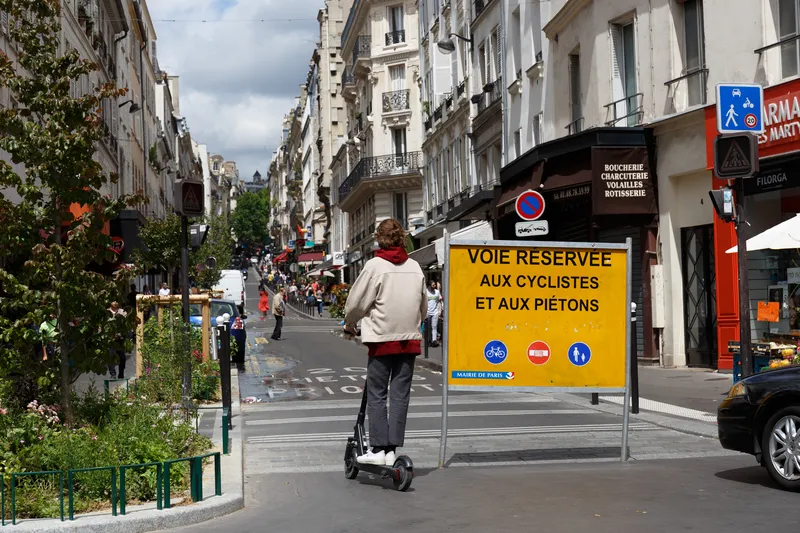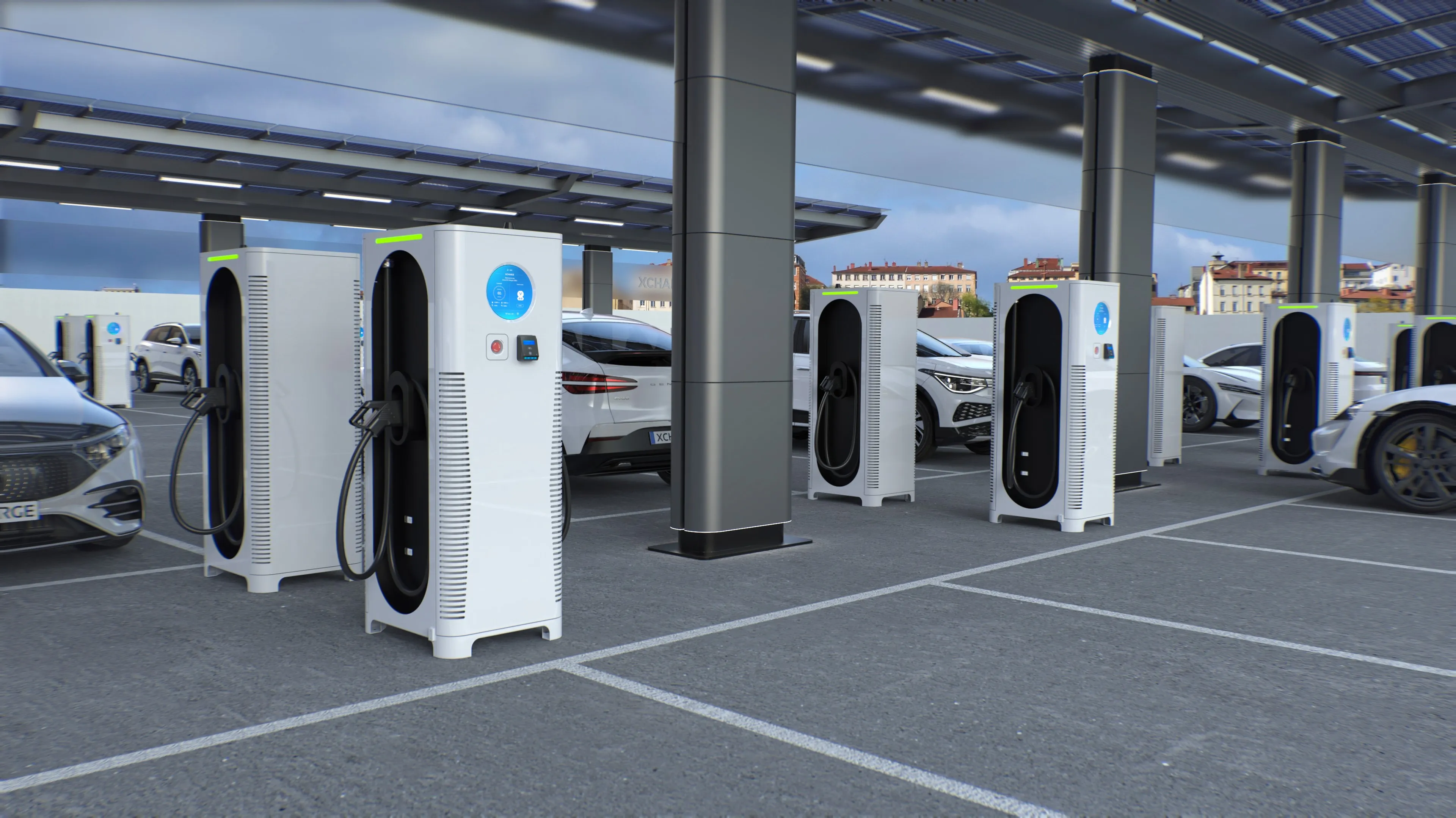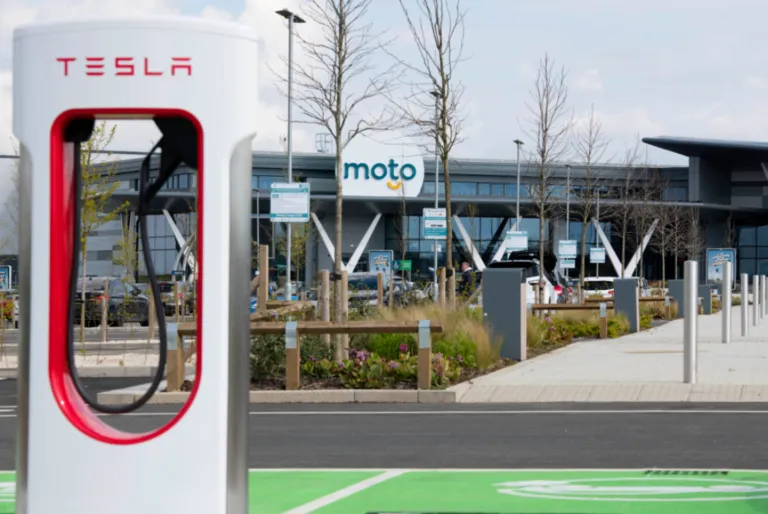
Kuper writes: “We know that some vehicle is going to replace the combustion-engine car. The EU, UK, California and several other US states will ban sales of new petrol and diesel cars by 2035, with the phasing out starting much earlier.”
So what will most drivers shift to? Will they take up electric cars — which Kuper says are just a cleaner version of what they already have — or switch modes of transport altogether? Mr Kuper’s bet is that, in cities at least, the e-car won’t be the vehicle of the future. “I suspect it will keep falling further behind e-bikes, e-mopeds and e-scooters,” he writes.
He cites the price of EVs, their carbon footprint and the fact that they are not a solution to the urban traffic problems caused by current ICE vehicles as barriers to EV rollouts in cities.
Kuper says that bikes are also becoming a cultural urban norm: “I see this in Paris, where only one in three households now owns a car, and cycle paths are full even in January, something that I used to be told would never happen. Bikes move faster in Paris than cars, city hall’s statistics show.”
So is he right? A brains trust at Route One Publishing has produced some interesting responses.
Route One chairman Roger Adshead says: “The guts of this piece is that e-bikes will replace cars for short urban journeys, at least in Europe. Fact. It’s happening.
“The electric car aspect is somewhat bogus: Regardless of whether ICE, hybrid, or electric, the advent of the e-bike is the changemaker. It is much cheaper than owning any type of car in an urban environment, and subject to weather conditions, it provides a rather convenient and sometimes faster alternative.
“No mention is made of e-bike stats for the US, where in general it would be far more inconvenient and/or hazardous in many places than in Europe: Extreme heat; extreme cold; longer distances between destinations; risk of attack; social norms.
“So, in a nutshell, it’s saying that in European urban environments, e-bikes will replace cars of any propulsion type. All the stuff about EVs is an attempt at headline grabbing, really.”
He adds that the point of relevance for EVs and EV infrastructure is that a reduced demand for cars will hasten the point at which the EV charging infrastructure will meet the requirements of the market. “Multi-occupancy vehicles and goods vehicles (usually fleets) will continue to have at least four wheels and increasingly become electrified. People that live outside large urban environments will continue to use cars, increasingly electrified.”
E-scooters not a universal solution
Route One editorial director and publisher Geoff Hadwick says that e-bikes and e-scooters are not a universal solution as they are impossible to use for more than half of the population, including the disabled / the elderly / pregnant women / families with young children / children under 12 etc.
“Paris has already banned e-scooters as a public nuisance,” he adds. “A recent public vote showed them to be extremely unpopular.
“E-bikes are even more useless and inaccessible. Like e-scooters, they’re abandoned all over the city, and they’re causing more and more hallway fires in flats and houses of shared occupation.
“They appeal to kidults and idealists. They litter the streets of the cities they disfigure and have caused endless accidents and deaths. They are utterly pointless as any sort of mass movement solution. How do freight deliveries work on e-scooters?”
Roger Adshead notes that over the last four years in Auckland, New Zealand there were 10,577 electric scooter accident injury claims costing the taxpayer over NZ$30m (source: New Zealand Herald).
Some partial support for Simon Kuper’s hypothesis comes from Adam Hill, editor of EV Charging and Infrastructure’s sister publication ITS International, who comments: “The Paris ban is actually on shared e-scooter companies plying their trade in Paris – you can still use e-scooters as an individual.
“Paris Mayor Hidalgo has removed – or is planning to remove – 70,000 car parking spaces from the city. Whether your car is electric or not, it’s probably not your best way to get around central Paris (rather like central London).
“Cars and cities often don’t mix brilliantly, something that many European countries have twigged, as has Singapore for decades, and the US is waking up to (very, very slowly).
“But fear not: other European cities actually incentivise you for driving your EV in them; and outside cities, EVs are here to stay.”
So what are your thoughts esteemed EV Charging and Infrastructure readers? Are EVs are a viable long-term alternative for sustainable urban transport? Will the e-scooter/e-bike/e-moped option work in a range of environments, or only for a certain demographic of city dwellers? Let us know your thoughts by commenting on the story on our LinkedIn page: https://www.linkedin.com/feed/update/urn:li:activity:7156656672520720384








